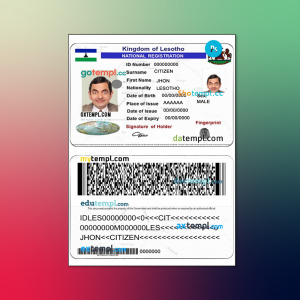In today’s interconnected world, where identity and security play vital roles, the significance of a National Registration Card (NRC) cannot be overstated. A National Registration Card serves as the cornerstone of a nation’s identity management system, providing individuals with a unique identifier that unlocks a myriad of benefits and opportunities. By harnessing the power of NRCs, countries can empower their citizens, strengthen governance, and drive socioeconomic progress.
At its core, a National Registration Card is a tangible proof of citizenship and identity. It acts as an official document that authenticates an individual’s nationality, age, and other key details. This verification mechanism enables governments to effectively manage their populations, formulate policies, and ensure the equitable distribution of resources and services. By having a comprehensive database of NRC holders, governments can make informed decisions, allocate funds efficiently, and implement targeted social welfare programs. 👌
The utility of NRCs extends far beyond their function as identification documents. They form the foundation for essential services such as voter registration, healthcare access, education enrollment, and social security benefits. NRCs enable individuals to exercise their democratic rights, participate in the political process, and contribute to shaping the future of their nation. They serve as gateways to healthcare, allowing citizens to access medical services, track health records, and benefit from public health initiatives. Moreover, NRCs facilitate enrollment in educational institutions, ensuring that every citizen has equal opportunities to acquire knowledge and skills.
Furthermore, NRCs play a crucial role in enhancing national security and curbing fraudulent activities. By implementing robust biometric systems, such as fingerprint or iris recognition, governments can prevent identity theft, illegal immigration, and other forms of criminality. NRCs act as a shield against terrorism, money laundering, and other threats that exploit weak identity management systems. The secure infrastructure surrounding NRC issuance and verification strengthens a nation’s defences, instils public trust, and promotes a safer society.

In addition to their immediate benefits, NRCs have the potential to drive economic growth and foster financial inclusion. With a reliable identification system in place, governments can streamline administrative processes, facilitate e-governance initiatives, and reduce bureaucratic hurdles. This efficiency leads to cost savings, increased productivity, and improved service delivery. NRCs also empower individuals to access financial services, open bank accounts, and participate in the formal economy. By expanding financial inclusion, countries can unleash the entrepreneurial potential of their citizens, stimulate innovation, and foster economic development. 😎
While acknowledging the immense potential of NRCs, it is crucial to address potential concerns regarding privacy and data protection. Governments must ensure that robust safeguards are in place to protect individuals’ personal information, maintain confidentiality, and prevent unauthorized access. Transparency, accountability, and adherence to international standards are vital to build public confidence in the integrity of the system.
download an editable example here: click
In conclusion, National Registration Cards are powerful tools that empower individuals, strengthen governance, and foster socioeconomic progress. By harnessing their potential, countries can unlock a plethora of benefits, including improved service delivery, enhanced security, and increased economic opportunities. However, it is imperative that governments strike a balance between the advantages of NRCs and the protection of individual privacy. With careful implementation and continual improvement, NRCs have the potential to revolutionize identity management systems and pave the way for a brighter future.
